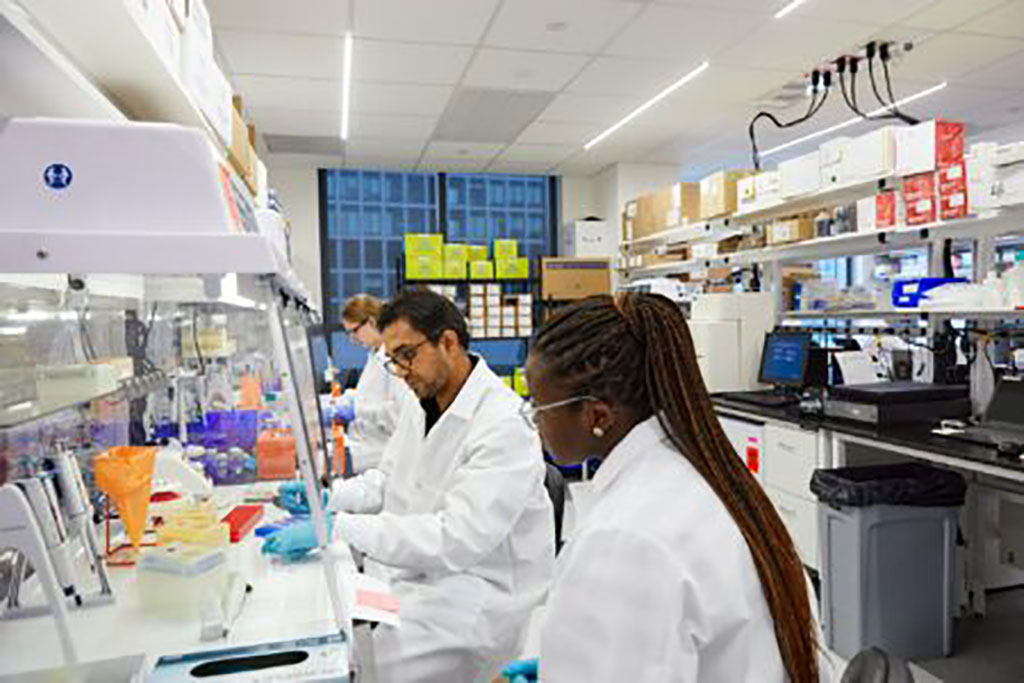Nucleic Acid Amplification Technology to Help Develop Instrument-Free Assays
Posted on 18 Oct 2022
Most nucleic acid-detecting diagnostic assays, including currently available SARS-CoV-2 PCR tests, are performed on qPCR instruments that cycle between defined temperatures. To eliminate the necessity for precise temperature cycling, biomedical researchers have developed so-called “isothermal amplification methods” that require heat to activate the amplifying enzymes, but then amplify nucleic acid sequences at a single tightly controlled temperature. Now, a new ambient amplification method could introduce an unprecedented robustness into molecular detection assays because it enables maximum amplification without heat-activation and in a range of temperatures, opening up various opportunities for point-of-need testing in different temperature and geographical settings.
The Wyss Institute for Biologically Inspired Engineering at Harvard University (Cambridge, MA, USA) and Sherlock Biosciences (Cambridge, MA, USA) have announced that Sherlock has secured an exclusive world-wide license from Harvard University’s Office of Technology Development (OTD) that enables the amplification of nucleic acid molecules at ambient temperatures. The company will integrate the method with its CRISPR-based SHERLOCK platform to advance instrument-free diagnostic assays that can detect pathogen or disease-related nucleic acids at the point-of-need.

“Many of the diagnostic detection assays that we create in the lab for use in low-resource settings break new ground because they embody first-of-its-kind methodology that is rooted in synthetic biology,” said James Collins, Ph.D., Wyss Institute by Founding Core Faculty member and co-founder of Sherlock Biosciences. “While these assays are well-capable of detecting limiting amounts of target nucleic acids, their results also need to be made visible to the naked eye to be useful at the point-of-need. Our newly engineered amplification method allows one to amplify pathogen or disease-reporting nucleic acid molecules at ambient temperatures, which is an important step in this direction.”
“The highly stable enzyme-based, multi-component nucleic acid amplification method coming out of Collins’ Wyss lab will be a pivotal piece of our technology platform,” said Bryan Dechairo, Ph.D., President and CEO of Sherlock Biosciences. “CRISPR-based SHERLOCK technology can already be used as a diagnostic tool in virtually any setting to detect target RNA or DNA molecules with high sensitivity and specificity without strict temperature requirements. By integrating it with this next-generation amplification technology, we will be able to perform the entire detection-amplification-visualization process at ambient temperatures and, importantly, instrument-free. This unlocks vast potential for diagnostics to treat infectious disease in low resource settings, where access to diagnostics has traditionally been limited.”
Related Links:
Harvard University
Sherlock Biosciences














